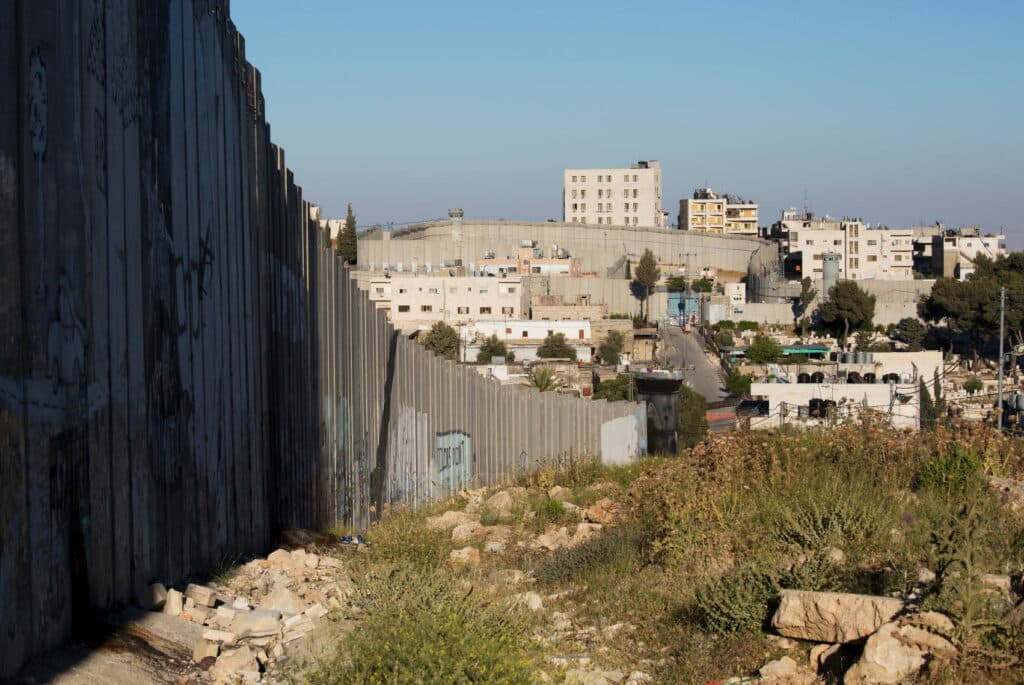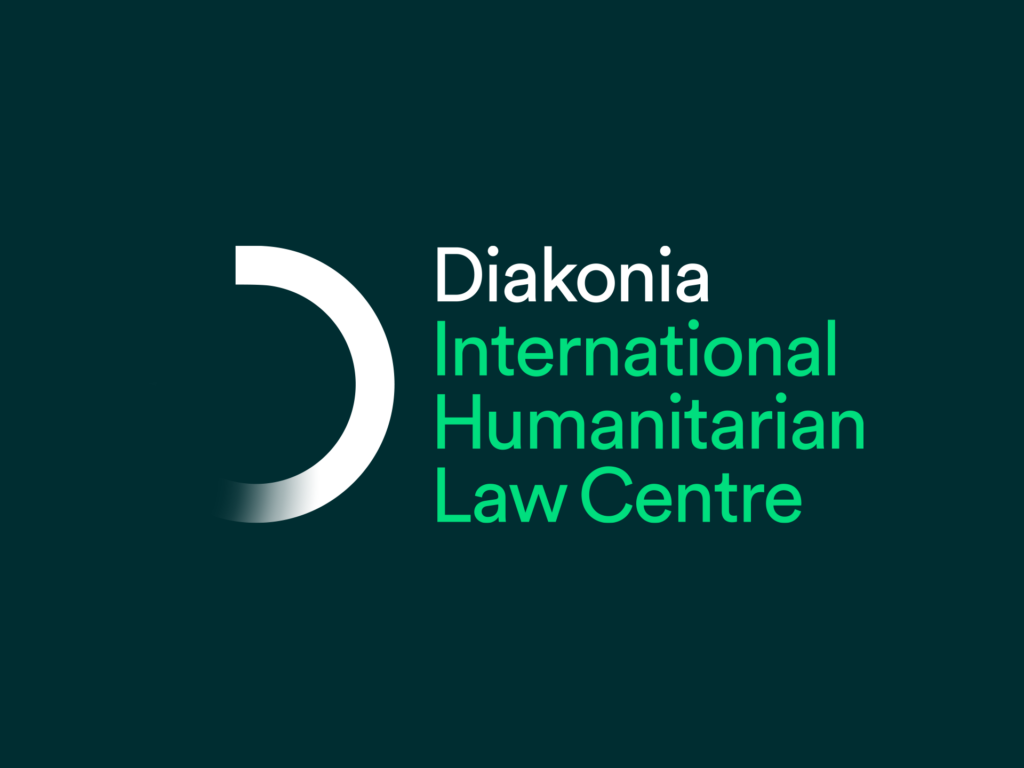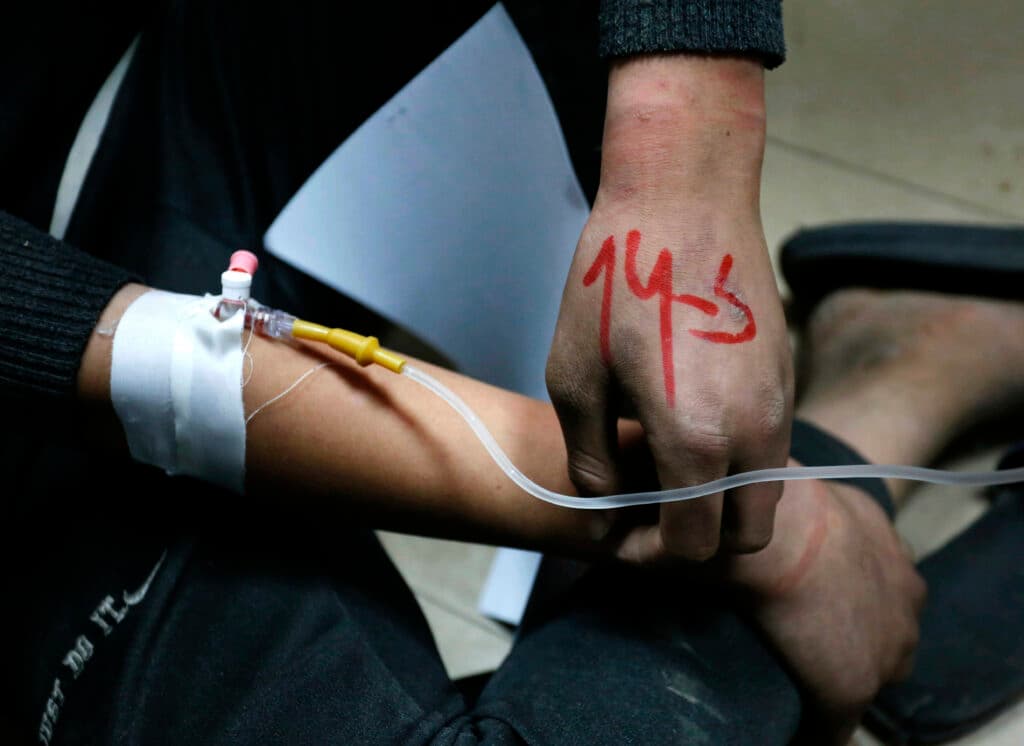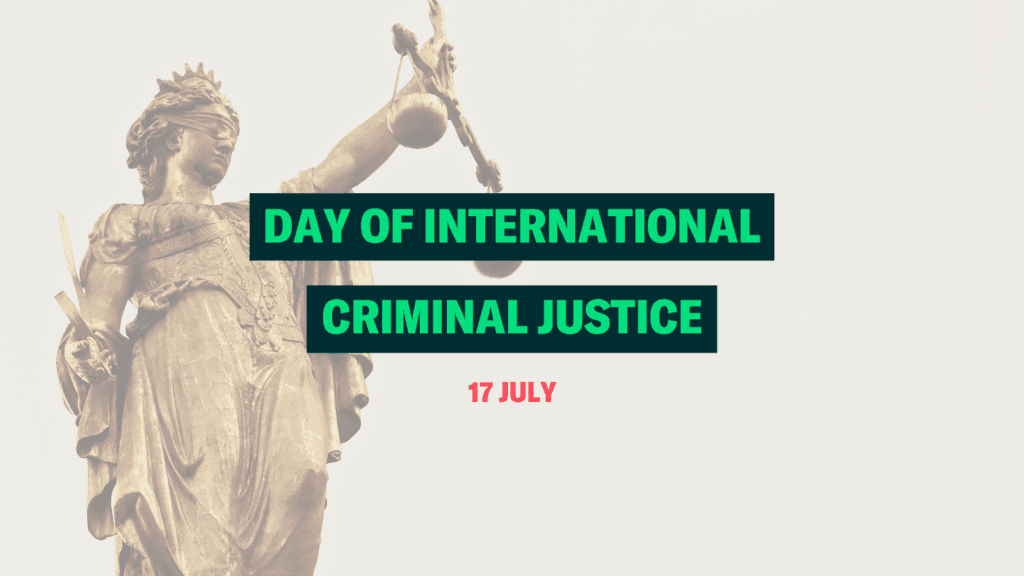
International law, colonialism and the prospect of decolonization in Palestine
6 December 2022The Diakonia IHL Centre, which draws on international humanitarian law (IHL) to promote positive change, is naturally concerned with questions about the adequacy and efficacy of this body of law.
As part of its efforts to address such questions in the context of the Israeli-Palestinian conflict, the Centre has been running an event series titled Reflections on International Law and the Question of Palestine. The third installment of the series, held on 21 September 2022, focused on questions concerning colonialism and the prospect of decolonization in Palestine. The following provides a brief account of this event and the reflections it generated.
The law of occupation and colonialism
The rules of IHL that form the law of occupation set constraints on alien domination of a territory and its people. They establish that an occupying power does not acquire sovereignty over the occupied territory, and that the occupation should be a transitory state. Relatedly, the law of occupation requires the occupying power to refrain from creating fundamental changes in the occupied territory and, among other things, specifically provides that the occupant may not transfer its own nationals into the occupied territory. In this sense, the law of occupation as currently construed prohibits the pursuit of colonial projects in occupied territory.
Its crucial role notwithstanding, IHL alone is not sufficient to address all the complexities of the Palestine/Israel context, including those relating to its colonial past and present, or to the prospect of decolonization in the future. Indeed, IHL – which was, after all, codified for the most part in the colonial period, by colonial powers – does not provide an effective framework with which to respond to colonial history, or to the ongoing manifestations and implications of colonialism. IHL is certainly deficient when it comes to addressing concerns about colonialism in the part of historical Palestine, or the Land of Israel, which is now internationally recognized as the sovereign territory of the State of Israel, and where the law of occupation is consequently deemed inapplicable. Accordingly, to the extent that settler colonialism has been or is being pursued in Israel, as many maintain, IHL has nothing to say about it. Nor does IHL provide a formula for decolonization.
Complementary legal and analytical frameworks
Given IHL’s limitations in addressing the colonial dimensions of the situation, the IHL Centre is seeking to understand how IHL might interact with other legal and analytical frameworks in a manner conducive to a favourable resolution of the, so-called, “question of Palestine”. This exercise necessitates two lines of inquiry.
First, it requires an analysis of the internal relations between IHL and other fields of international law applicable to the Palestinian-Israeli context, such as human rights law, the law on the use of force (jus ad bellum), the law on self-determination, and the prohibition of apartheid. Internal analysis of this type has been pursued by many actors with an expertise in international law, including bodies with a mandate to monitor and investigate violations. Some recent examples include reports by the Special Rapporteur on the situation of human rights in the occupied Palestinian territory (oPt) and by the Independent International Commission of Inquiry on the oPt. Further analysis of this kind is likely to be undertaken by the International Court of Justice in the wake of a request for it to render an Advisory Opinion on the legal consequences of Israel’s policies and practices in the oPt and the legal status of the occupation.
The second line of inquiry required is one that is not confined to international law itself and instead investigates its often vexed relationship with colonialism as an extra-legal (political, sociological and cultural) phenomenon. As an initial step in this latter exercise, which involves critically reflecting on legal discourse through an external analytical prism, the IHL Centre has been seeking insight from scholars and practitioners with relevant expertise. It was with that in mind that Adv. Suhad Bishara, Legal Director and Director of the Land and Planning Rights Unit at the human rights organization Adalah, and Dr Lana Tatour, Lecturer in Development at the University of New South Wales’ School of Social Sciences, were invited to present at the Centre’s event series on the theme of “International law, colonialism and the prospect of decolonization in Palestine”.
Using law to promote and obfuscate settler colonialism
Bishara, who is currently completing a PhD on the topic of “Land and Law in Israel/Palestine: Settler Colonial and Apartheid Perspectives on Jewish Territorial Domination”, focused her comments on Israeli law and legal discourse with respect to land in historical Palestine.
Settler colonialism advanced by Israeli domestic law
Bishara observed, first, that Israeli law is inherently political by virtue of Israel’s self-definition as a Jewish State. This constitutive conceptualization is given concrete expression through the enactment and application of discriminatory laws—most notably, the 2018 Basic Law: Israel as the Nation-State of the Jewish People—that result in the segregation, dispossession, and territorial exclusion of Palestinians. Israeli law is thus implicated in the political, settler colonial, project of solidifying Jewish domination over Palestinians.
Settler colonialism advanced by (mis)interpretation of the law applicable in the oPt
Second, Bishara observed that the Israeli authorities, with the notable inclusion of the Israeli Supreme Court, have exercised their power to interpret and apply the law applicable in the oPt (including the law of occupation as well as law established, respectively, by the Ottoman Empire, the British Mandate, Jordan, and the Israeli military authorities) in a manner conducive to the Israeli settlement enterprise. Some notable examples in which the Israeli Supreme Court advanced interpretations of such kind include:
- a ruling, in the 1970s, that the settlements serve legitimate security considerations;
- a decision in the 1990s in which it determined that the Israeli government’s policy regarding settlements is an inherently political issue that is consequently non-justiciable; and
- the recent sanctioning of the expropriation of private Palestinian land on the basis of a criterion of “good faith” in the relationship between settlers, settler organizations, and the military. Palestinians, whom the Court left out of the equation, were thereby relegated to mere objects of dispossession and displacement.
Settler colonialism obfuscated by decontextualization
Third, she observed that the Israeli judicial authorities’ approach to land (and other legal) disputes involving Palestinians is characterized by techniques of decontextualization that obscure Israel’s systematic segregation and territorial exclusion of Palestinians. Legal challenges to Israeli policies and practices causing harm to Palestinians are assessed, at best, with narrow attention to the rights and interests of individual Palestinian claimants while disregarding the wider implications for the collective rights and interests of the Palestinian people. In this manner, measures that displace and dispossess Palestinians in the oPt (for instance, the allocation of public lands in the West Bank to Israeli settlers and military installations) are assessed without any consideration of the detrimental implications for Palestinians’ right to self-determination and sovereignty over their own territory. This approach subverts the law of occupation, which is meant to safeguard the interests of the occupied territory’s rightful sovereign and indigenous population, and to prevent the occupying power from abusing the occupied territory to serve its own interests or those of its own nationals.
Similarly, when adjudicating land disputes involving Palestinian citizens of Israel or residents of East Jerusalem, Israeli judicial instances fail to consider or even to acknowledge the harm that Israeli settler colonialism has inflicted on Palestinian collective rights: displacing and dispossessing Palestinians and segregating them from Jewish Israelis while also separating them from one another in fragmented parts of historical Palestine under varying modes of Israeli control.
Putting apartheid in colonial context
Tatour, who among other things is currently working on a manuscript titled “Ambivalent Resistance: Palestinians in Israel and the Liberal Politics of Settler Colonialism and Human Rights”, welcomed the publication of reports in which Israeli and international organizations (B’Tselem, Human Rights Watch, and Amnesty International) have finally joined Palestinian commentators in asserting that Israel maintains an apartheid regime. She also noted approvingly that these reports acknowledged manifestations of apartheid across all of the fragmented parts of historical Palestine which Israel controls through different legal modalities. At the same time, she expressed criticism of these reports for assessing apartheid in a vacuum, failing adequately to contextualize the finding that Israel exercises a regime of racial domination over historical Palestine. Most notably, apartheid is dissociated from both its underlying structure (settler colonialism) and ideology (Zionism).
Tatour argued that the focus on racial discrimination and domination, to the exclusion of Israel’s wider settler colonial project and the ideology that drives it, produces a reading of apartheid that reflects a liberal political sensibility and reconfigures Palestine from a colonial into a liberal question. The issue is framed around the fact that Israel enacts a differentiated rights regime in the territories it governs (and not why, in the service of which project), which could be remedied by means of granting equal rights to all persons under Israel’s control. However, this not only contradicts Palestinians’ traditional critique of Zionism and Israel, but also diminishes the prospects of advancing a de-colonial or anti-colonial future in Palestine.
Tatour stressed that the Palestinian question is not only a legal, but also a political and a colonial question. As such, Palestinians and supporters of the Palestinian cause should not stake their political claims on what international law allows them to say. Instead, they should endeavour to develop and transform international law so that it better accords with Palestinians’ understanding of their own reality. In this regard, she highlighted the need for international lawyers and international institutions to advance a legal critique of Zionism as a racial ideology. She concluded by expressing concern over the prevailing discourse within the international community regarding the question of Palestine, which is increasingly hegemonic towards a liberal approach that misses the colonial essence of the problem.
Decolonization
After Bishara and Tatour delivered their presentations, they both responded to questions from listeners. Much of the ensuing discussion addressed the prospect of decolonization, the routes to it and the challenges that would need to be overcome for it to be achieved.
Bishara observed that to her mind decolonization in the context should be geared towards the interconnected goals of realizing the collectivity of both peoples and the human rights of all individuals. She opined that a process of decolonization in Palestine could not simply follow the route taken in other places and would have to take account of the specificities of the context. She further observed that decolonization could not be expected to unfold in a uniform manner across all parts of historical Palestine. The different structures and histories of settler colonialism in the various parts of the territory merit diverging approaches for each area and its residents. Relatedly, she noted that it would be necessary to ensure that all of the constitutive parts of the fragmented Palestinian people, with their diverging experiences, would be represented in the process.
Tatour maintained that decolonization is not a liberal project and that securing citizenship and equal political rights for Palestinians will not suffice to achieve it. For decolonization to occur, she insisted, citizenship and political equality would have to be accompanied by a form of distributive and restorative justice that would equitably respond to Palestinians’ claims over their land, as well as a dismantling of the judicial system that is designed to dispossess and subjugate Palestinians and indeed of all the political, social, and economic systems through which Israel’s settler colonialism has manifested. In Tatour’s view, a failure to dismantle the settler colonial structure and to abandon the Zionist ideology that sustains it will leave Palestinians in a state of inferiority in their homeland.
Conclusion
The event foregrounded the view that settler colonialism is at the root of the injustices that Israel has inflicted upon Palestinians, and that decolonization is essential for any prospect of a just resolution of the question of Palestine. On this view, the prevailing legal and political debate about the Israeli-Palestinian conflict—even when critical of Israeli policies and practices that oppress, dispossess, displace, and discriminate against Palestinians—is insufficiently attentive to the colonial structures that enable such injustices or to the ideology that inspires them. This suggests, among other things, that the assessment of rival claims concerning sovereignty and self-determination and regarding collective as well as individual rights should occupy a more prominent place in legal analysis of the context. The IHL Centre intends to engage in such analysis.







